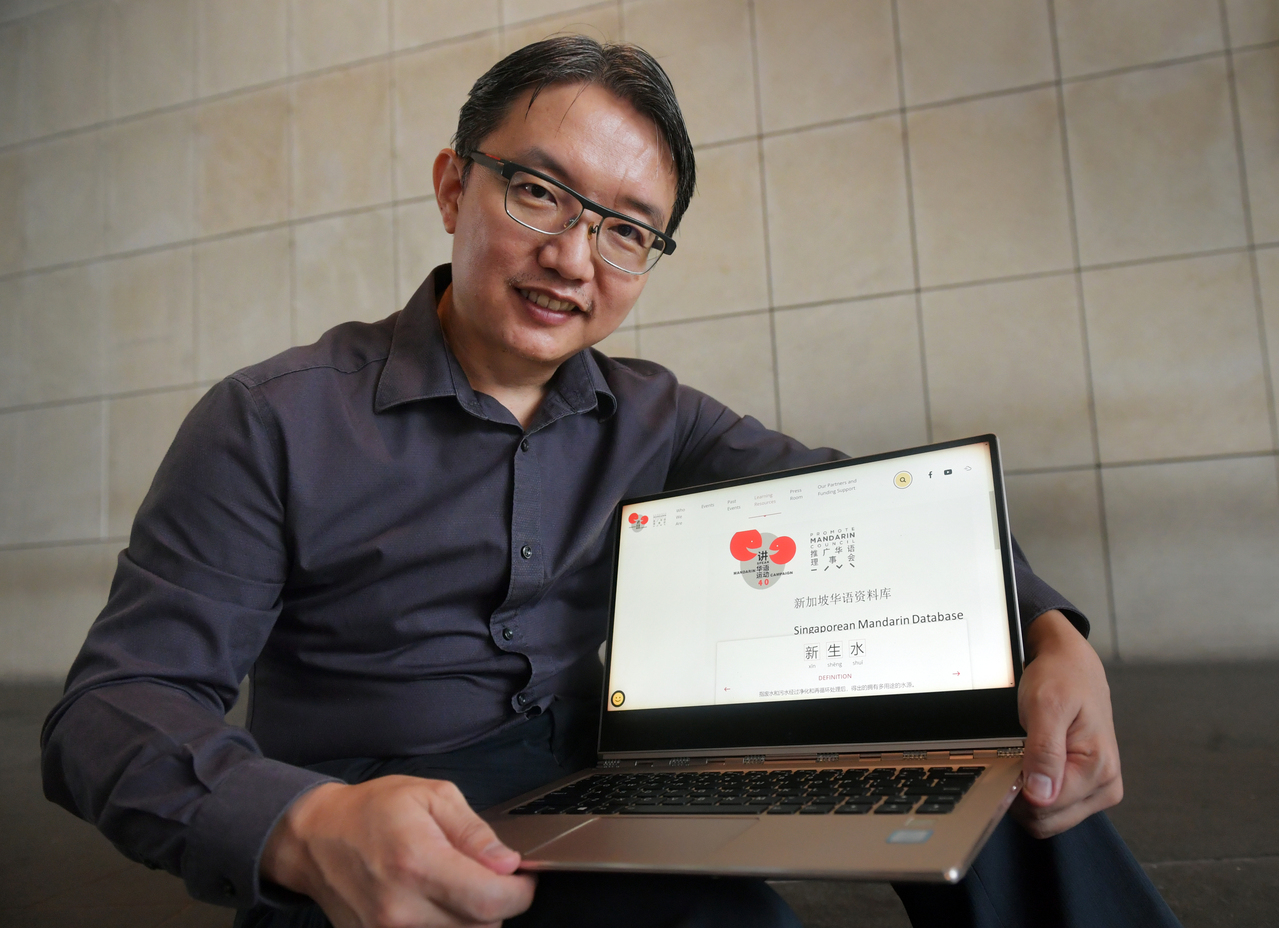Public seminar on Singaporean Mandarin as 1,000 terms selected for online database
Sign up now: Get ST's newsletters delivered to your inbox

Associate Professor Tan Chee Lay showing the Singaporean Mandarin Database project with the online database.
ST PHOTO: ALPHONSUS CHERN
SINGAPORE - Chi feng (going on an overseas holiday), hao cai (fortunate) and tou jia (boss) - these unique Singaporean Mandarin terms can be found in the online Singaporean Mandarin Database launched by the Promote Mandarin Council (PMC) in 2019.
To date, the research team has selected more than 1,000 terms for the database.
The PMC will be organising a free public seminar - Selat to Singapore: A Conversation on Singaporean Mandarin - in October to provide interesting insights on Singaporean Mandarin and how it reflects Singapore's culture and identity.
The keynote speakers include Associate Professor Tan Chee Lay with the National Institute of Education, who is also a PMC member and principal investigator for the Singaporean Mandarin Database research project.
The others are Associate Professor Tham Shiao Wei from the National University of Singapore (NUS) and Mediacorp Channel 8 news presenter Vincent Lim.
Also in the works is a bilingual book set featuring terms in the database, to be published in 2023.
Prof Tan said: "The Mandarin used in Singapore reflects Chinese Singaporeans' unique identity and is worth recognising and preserving. It also enriches the resources of 'Chineses' or 'Dahuayu', a concept which recognises and encompasses variants of Chinese phrases and usages worldwide."
By developing a lexicon for Singapore Mandarin through a compilation of these terms, the database highlights their cultural significance and helps to strengthen understanding of Singapore's local Chinese culture, he added.
"It could also help to build the confidence and capability of Singaporean Chinese to use Mandarin in different environments," he said.
The terms selected for the database must meet certain criteria, such as being in use in the past or present, and having some cultural, historical or sentimental value unique to Singapore.
Some originated from dialects such as Hokkien, Teochew and Cantonese, while others came from English, Malay or Tamil. This shows that Mandarin used here is influenced by Singapore's multiracial, multilingual and multicultural society, said Prof Tan.
The research project team collaborates with professionals from different fields, including an expert panel, as well as more than 50 students from Nanyang Technological University, NUS and Ngee Ann Polytechnic.
Madam Heng Boey Hong, director of the Ministry of Education's Mother Tongue Languages Branch and a member of the project's expert panel, said the project team is collaborating with the ministry's Curriculum Planning and Development Division (CPDD) to select some of the terms to be included in a Chinese e-dictionary application used in its Student Learning Space platform.
The e-dictionary is a widget that can be activated whenever a user clicks on a word in the platform. The definitions of the word will be displayed together with a pronunciation clip and an image if available.
She said: "CPDD hopes that the incorporation of Singapore Mandarin terms and content into its system and e-dictionary would enthuse and interest the students and their families in Mandarin and our community's social history."

The database has already been mentioned at academic conferences and used in schools. For example, in the NUS module titled La Kopi: Forging of the Chinese Singaporean Community, students choose terms from the database to write either a literary or academic piece.
Prime Minister Lee Hsien Loong also cited some of the terms from the database at the National Day Rally 2022 to show how the Chinese community has developed a deeper sense of national identity and greater confidence in their culture.
The Singaporean Mandarin database is on this website.
The public seminar - Selat to Singapore: A Conversation on Singaporean Mandarin - will be held on Oct 29 from 10.30am to noon at The Pod, National Library Building, in Victoria Street. To register, go to this website.


